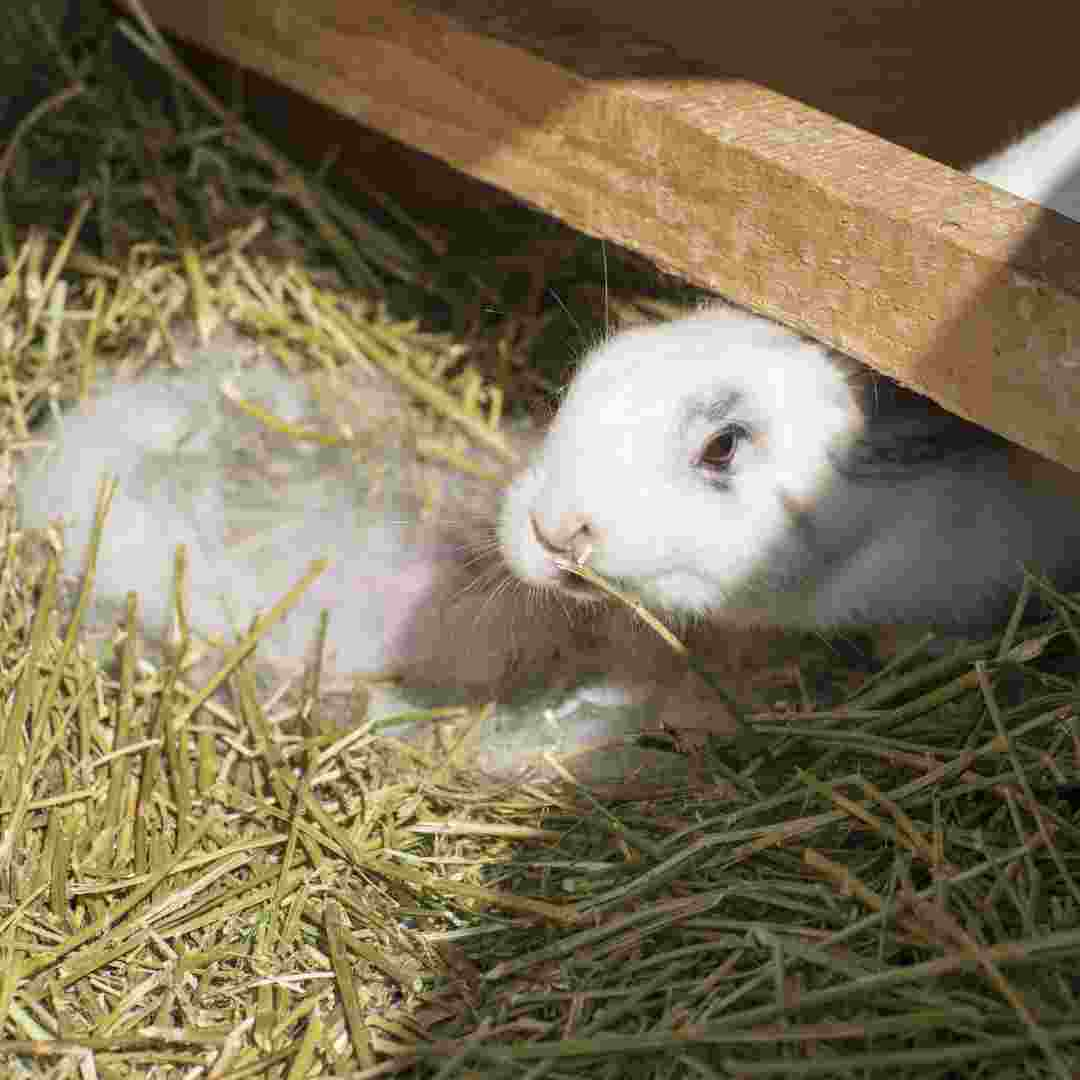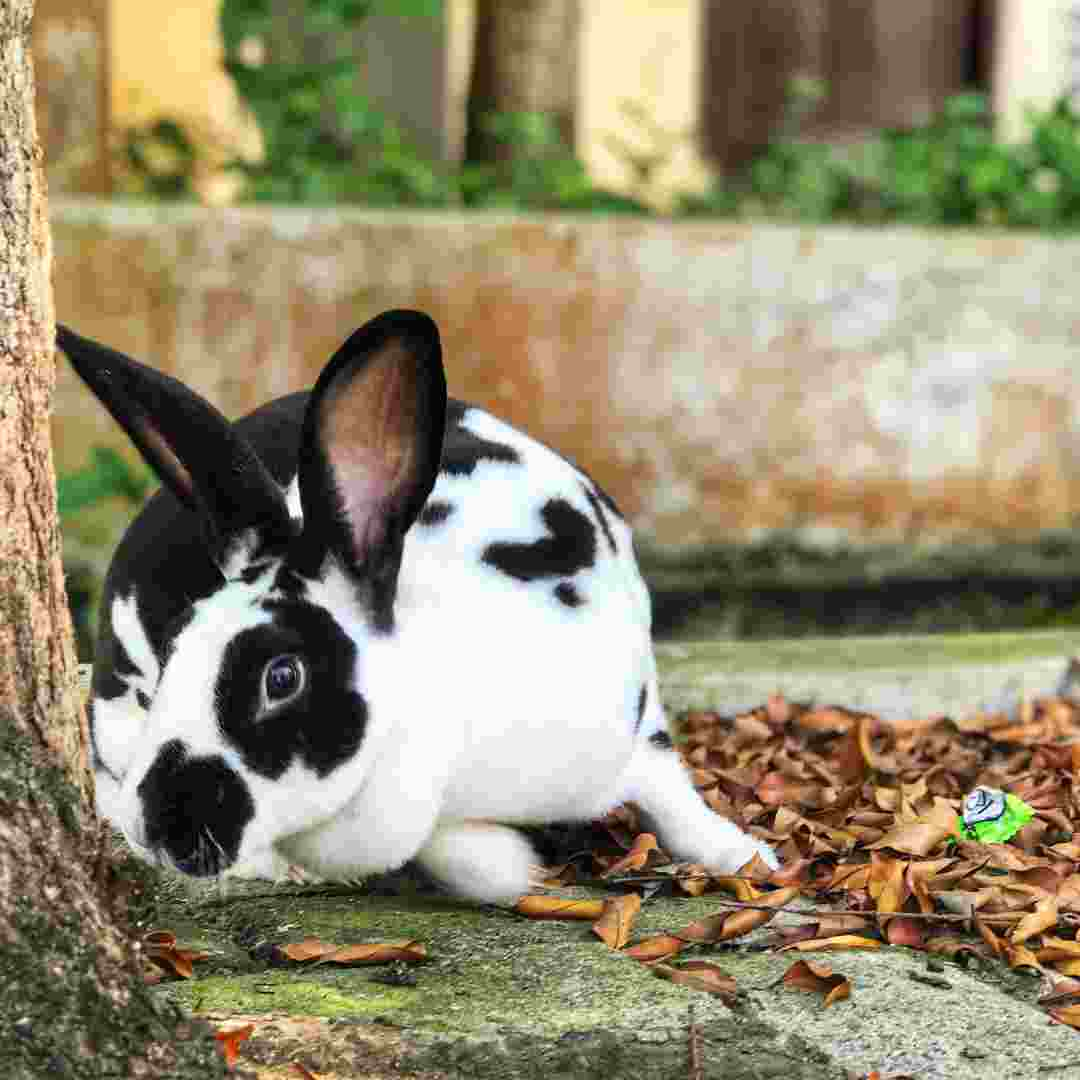Contents Table
Introduction
Rabbit Appetite Loss Common Causes
How to Diagnose and Treat Rabbit Dehydration
Stress and Rabbit Appetite Loss
How to Increase Rabbit Appetite
Rabbits Need Proper Nutrition to Eat Healthy
Q&A
Conclusion
Introduction
Rabbits are sensitive and might get sick if their diet and habitat are overlooked. If a rabbit stops eating and drinking, find out why and take action. Stress, illness, dental issues, and food or environment changes might prevent rabbits from eating or drinking. Since rabbits can get quite sick if they don't eat or drink, it's crucial to find the source and fix it right away.
Rabbit Appetite Loss Common Causes
Healthy herbivorous rabbits need a balanced diet. Rabbits can lose appetite due to disease, stress, and environmental changes. Finding the source of appetite loss is crucial to treating it.
Illness is a leading cause of rabbit appetite reduction. Rabbits can get gastrointestinal, respiratory, and dental difficulties. Because the rabbit may not feel well, these ailments can reduce appetite. Lethargy, weight loss, and behavioral changes indicate disease, so take your rabbit to the vet.
Stress might also cause rabbit appetite decrease. Moving or getting a new pet might stress rabbits, who are sensitive animals. Lack of rabbit socializing might also induce stress. A safe and comfortable setting is essential for stressed rabbits who hide or act aggressively.
Lastly, environmental changes might make rabbits lose appetite. Habitual rabbits can be stressed by changes in their surroundings, such as a new diet or dwelling area. Your rabbit needs a stable and comfortable environment to adjust to changes.
To treat your rabbit's appetite loss, you must determine the cause. If you're worried about your rabbit's health, take it to the vet.
How to Diagnose and Treat Rabbit Dehydration
To treat rabbit dehydration quickly and effectively, you must be able to recognise its symptoms.
Rabbit dehydration symptoms
Rabbits' most common dehydration symptoms include dry nose, eyes, mouth, sunken eyes, and skin laxity. Dehydration can also cause tiredness, appetite loss, and decreased urine and feces output.
Rabbit Dehydration Treatment
If your rabbit is dehydrated, take it to the vet. Intravenous or subcutaneous fluids are used to treat rabbit dehydration. Sometimes oral rehydration solutions are employed. Avoid giving rabbits water orally to avoid aspiration pneumonia.
Your rabbit's veterinarian may offer electrolytes to restore electrolyte balance in addition to fluids. To combat dehydration, your vet may suggest a high-moisture diet for your rabbit.
Rabbit Dehydration Prevention
Always providing rabbits with clean water is the greatest method to prevent dehydration. Water-rich vegetables and fruits should be fed to your rabbit. Extreme temperatures might dehydrate your rabbit, so keep an eye on its habitat.
You can keep your rabbit healthy and hydrated by recognizing dehydration symptoms and treating them quickly.
Stress and Rabbit Appetite Loss
Stress is a key cause of rabbit appetite reduction. Environmental, dietary, and social changes can induce stress. Stress can reduce a rabbit's appetite, which can harm its health.
Stress can make rabbits uneasy and afraid, reducing appetite. The rabbit's cortisol and adrenaline may reduce appetite. Stress can also distract rabbits from eating.
Stress can also raise the rabbit's heart rate and blood pressure, reducing hunger. Stress can also dehydrate rabbits, reducing appetite.
Recognizing rabbit stress can prevent appetite loss. Rabbits may hide, pace, or attack when stressed. Stress can also cause rabbits to pant, tremble, and increase their heart rate.
If a rabbit appears stressed, take action. This includes providing a safe and comfortable environment, enrichment activities, and food and water for the rabbit. Avoid stressful situations like loud noises or unfamiliar animals for the rabbit.
Stress is a major cause of rabbit appetite loss. Rabbits should be monitored for stress and treated to prevent appetite loss.
How to Increase Rabbit Appetite
Rabbits should eat hay, fresh vegetables, and a few pellets as herbivores. There are ways to stimulate a rabbit's appetite, which is vital to its health.
Making sure a rabbit is healthy is the first step to increasing its appetite. If the rabbit is sick or injured, take it to the vet. Once healthy, rabbits need a balanced diet. Rabbits should eat mostly hay and fresh vegetables daily. Pellets can be offered in small amounts.
To stimulate rabbit appetite, offer a variety of foods. Provide carrots, celery, and broccoli. Provide timothy, oat, and alfalfa hay. Treat them to dried fruit, nuts, and seeds.
The rabbit needs a comfortable environment too. Give the rabbit plenty of room to explore. Lots of toys and activities will keep the rabbit busy.
Finally, rabbits need routines. Feed the rabbit at the same time each day and provide plenty of time for exercise.
By following these steps, you can help stimulate your rabbit's appetite and ensure that it is getting the nutrition it needs.
Rabbits Need Proper Nutrition to Eat Healthy
Proper nutrition is essential for rabbits to maintain healthy eating habits. Rabbits are herbivores, meaning they feed on a variety of plant-based foods. A balanced diet is essential for rabbits to stay healthy and active.
Rabbits require a diet that is high in fiber and low in fat and protein. The best way to ensure that your rabbit is getting the proper nutrition is to feed them a diet of hay, fresh vegetables, and a small amount of pellets. Hay should make up the majority of a rabbit’s diet, as it is high in fiber and helps to keep their digestive system healthy. Fresh vegetables should be given in moderation, as too much can cause digestive upset. Pellets should be given in small amounts, as they are high in calories and can lead to obesity.
In addition to a balanced diet, rabbits also need access to fresh, clean water at all times. Water helps to keep their digestive system functioning properly and helps to prevent dehydration.
It is also important to provide your rabbit with plenty of exercise. Exercise helps to keep their muscles and bones strong and helps to prevent obesity.
Finally, it is important to provide your rabbit with a safe and comfortable environment. This includes a clean cage, plenty of space to move around, and access to toys and other enrichment activities.
By following these guidelines, you can ensure that your rabbit is getting the proper nutrition and staying healthy. Proper nutrition is essential for rabbits to maintain healthy eating habits and lead a long and happy life.

Q&A
1. What could be causing a rabbit to stop eating and drinking?
A rabbit may stop eating and drinking due to a variety of reasons, including stress, illness, pain, dental problems, or changes in diet. It is important to consult a veterinarian to determine the cause of the problem.
2. What are the signs of a rabbit not eating or drinking?
Signs of a rabbit not eating or drinking include decreased appetite, weight loss, lethargy, and dehydration.
3. What should I do if my rabbit stops eating and drinking?
If your rabbit stops eating and drinking, it is important to take them to the veterinarian as soon as possible. The veterinarian can help diagnose the cause of the problem and provide treatment.
4. How can I encourage my rabbit to eat and drink?
You can encourage your rabbit to eat and drink by providing fresh, high-quality hay and vegetables, offering a variety of treats, and providing fresh, clean water.
5. What are the risks of a rabbit not eating or drinking?
If a rabbit does not eat or drink, they can become dehydrated and malnourished, which can lead to serious health problems. It is important to seek veterinary care as soon as possible if your rabbit stops eating or drinking.
Conclusion
A rabbit can stop eating and drinking for a variety of reasons, including illness, stress, or changes in its environment. If your rabbit stops eating and drinking, it is important to take it to the vet to rule out any medical issues. If the vet finds no medical cause, then it is important to look for environmental changes that may be causing the rabbit stress. By providing a safe and comfortable environment, you can help your rabbit return to its normal eating and drinking habits.
